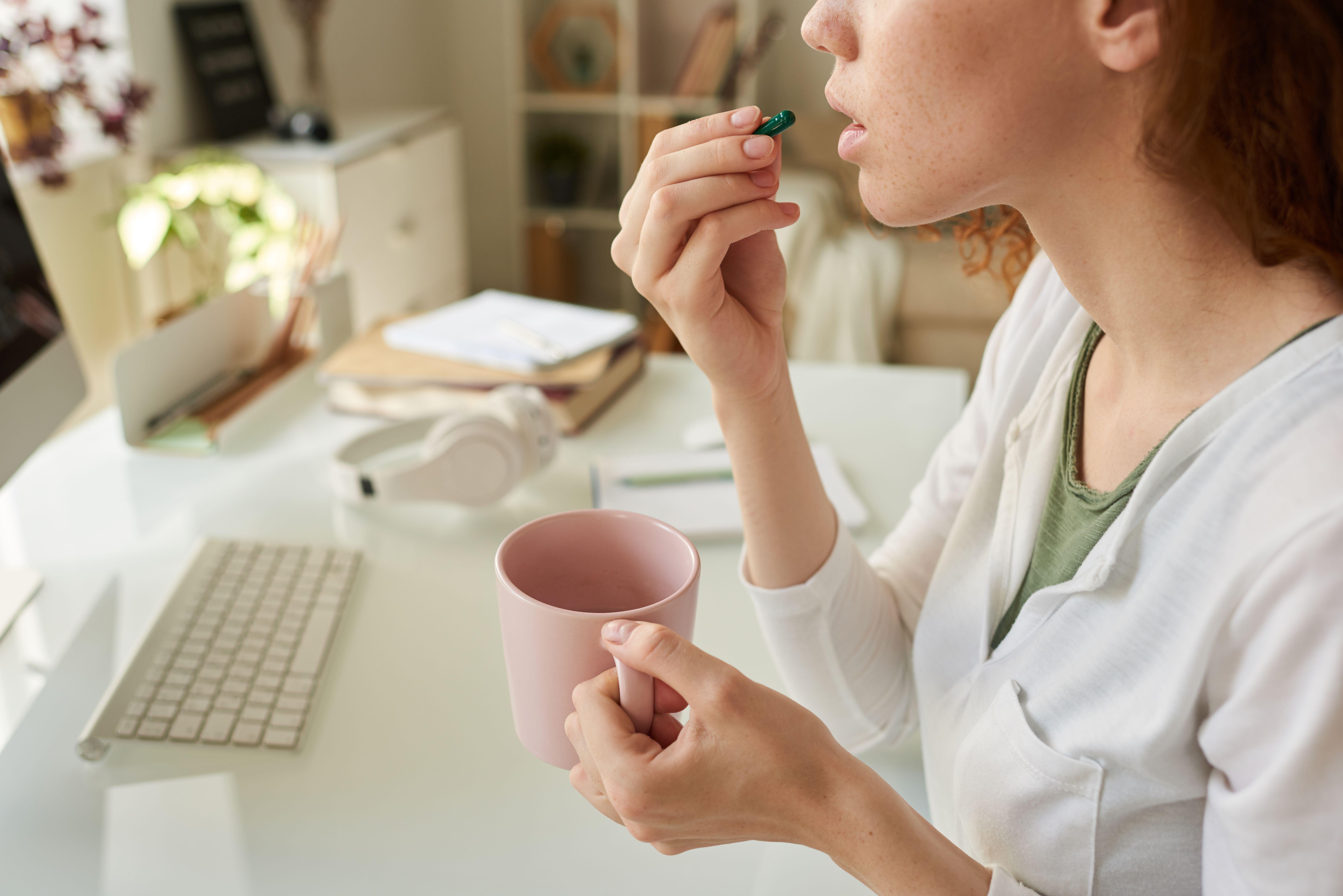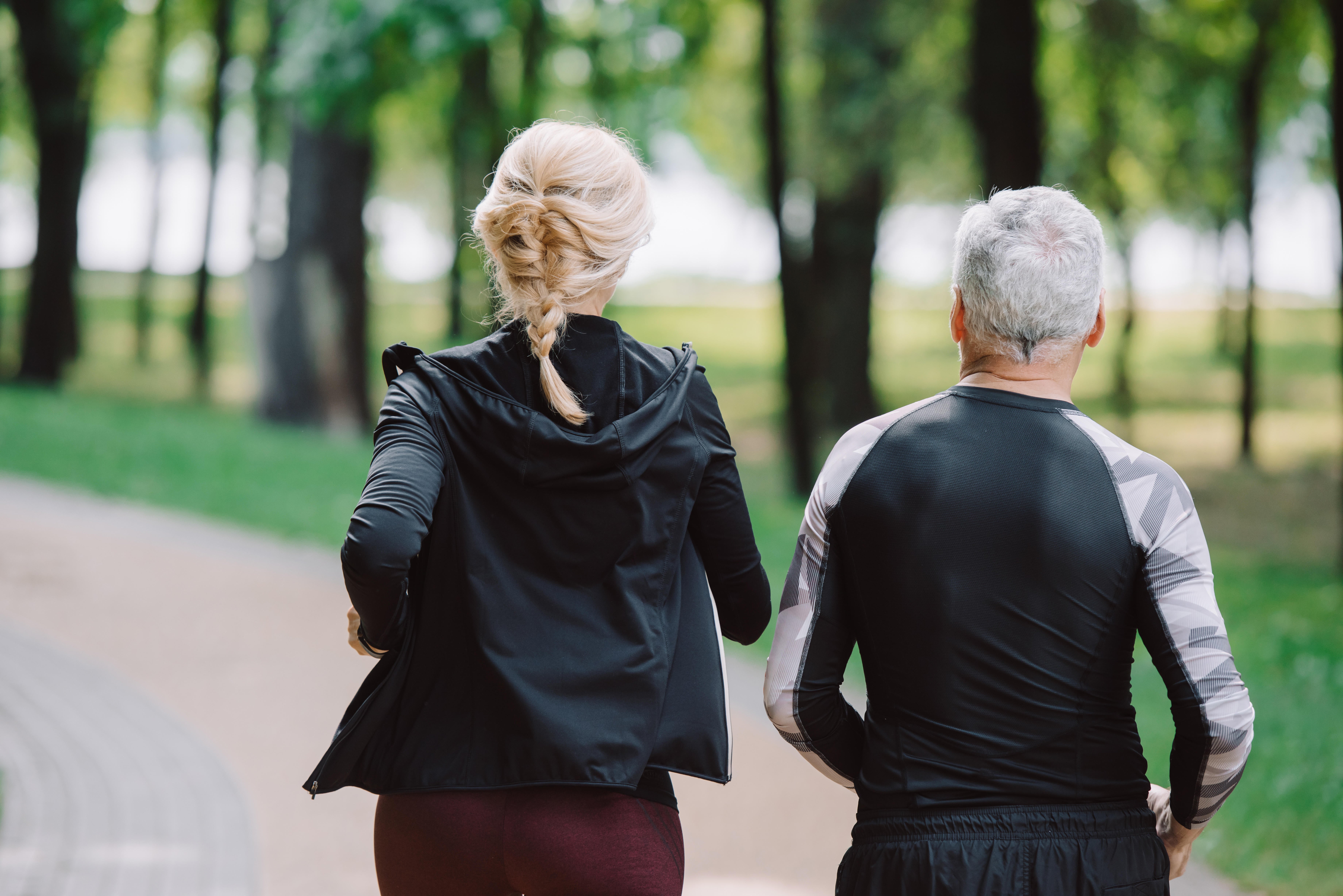Wellness trends are known for their fleeting popularity, from the low-fat diets of the early 2000s to today's focus on ultra-processed foods.
Now, a new trend called "biohacking" has emerged, fuelled by figures like Bryan Johnson and numerous podcasts discussing cell health and biological age.
But what exactly is biohacking? How can you determine your biological age, and does it truly predict your lifespan?
Experts in stem cell and longevity research are beginning to clarify the meaning of biological age, methods to reduce it, and why it's rapidly becoming a key metric in modern medicine.
What is biological age?
Biological age – a measurement of how well your body is functioning based on factors like lifestyle, stress and cellular health – is different to chronological age, as it isn’t fixed, and (perhaps thankfully) you can reverse it.
According to longevity experts, biological age provides a more accurate picture of health span than the candles on our birthday cake. And increasingly, it’s being treated as something we can influence.
CEO of Cellcolabs, Dr Mattias Bernow, who provided the stem cells for biohacker Bryan Johnson, explains that this measurement is, “a marker of how old your body seems based on your health, lifestyle and cellular function.” In other words, you might be 50 on paper, but living like someone 35 – or 65.
“Two people who are both 40 years old chronologically might have very different biological ages depending on how they live, their stress levels, their metabolic health and more,” says GP and founder of London’s longevity clinic, HUM2N Dr Mohammed Enayat.
What accelerates biological ageing?
The good news is that many of the biggest culprits behind accelerated ageing are changeable. Both Enayat and Bernow point to chronic stress, poor sleep, lack of exercise, ultra-processed foods and environmental toxins as major accelerants.
Parenting itself doesn’t inherently age the body, but, as Enayat points out, the chronic sleep deprivation and stress associated with caregiving certainly can.

Inflammation is another central player. “These factors contribute to increasing low-grade inflammation,” Bernow explains, “which plays a key role in age-related decline and the development of chronic disease.”
But this process, he says, is not set in stone. “While we can’t control everything, small, consistent changes to reduce these stressors can make a meaningful difference in how we age.”
Which lifestyle changes have the biggest scientific backing when it comes to reversing it?
When it comes to slowing the clock, it turns out the best advice isn’t ground-breaking – it’s just often overlooked.
Quality sleep, regular movement, a balanced whole-food diet, meaningful relationships and avoiding harmful substances all rank highly on the evidence-based list.
Enayat also points to practices like caloric moderation, intermittent fasting and resistance training for their “strong results in slowing biological ageing at a cellular level.”
However, these diets impact each sex differently, with intermittent fasting in particular causing more stress on women’s bodies while being effective for men, meaning they will affect biological age differently.
How big a part do genetics play?
Though it’s tempting to think of ageing as a genetic lottery, our DNA doesn’t write the full script. “Genes load the gun, but lifestyle pulls the trigger,” Enayat says, noting that genetics may only account for 20 to 30% of ageing outcomes.
Bernow says that emerging research suggests as much as 80% of ageing is governed by one’s environment and behaviour.
Do supplements actually make a difference?
Supplements claim everything from healthier skin to better energy to thicker hair – but it’s fair to be sceptical of whether they really make a difference, or if it’s all marketing.
However, there are some supplements that have been proven to be helpful if taken correctly and absorbed properly. “Protein is essential for preserving muscle mass,” says Enayat, while collagen “may help with skin and joint health,” though its systemic anti-ageing benefits are modest.

Fish oil, magnesium, creatine and polyphenols all show promise too, but Enayat is keen to emphasise that supplement should support – not replace – healthy habits.
Bernow cautions that while some supplements, like vitamin D, are well-supported (especially in sun-deprived regions), many products on the market are poorly regulated. “Supplements are not a substitute for healthy habits,” he says, “but in some cases, they can play a supportive role if used thoughtfully.”
How to find out your biological age and what healthy habits the experts incorporate
If this has sparked a curiosity to find out your own biological age, figuring it out requires a blood test.
“The most validated tests look at DNA methylation patterns,” says Enayat, and suggests well-known tests like the Horvath Clock, GlycanAge and TruAge.
Bernow says that Bryan Johnson uses the DunedinPACE test, which claims to show he’s ageing at just 0.66 years per year (66% of his chronological age).
As for how these experts practise what they preach – they say it’s all about balance and consistency.

Enayat’s daily habits include either walking, strength training or stretching, prioritising plants and healthy fats, regular fasting, cold exposure and supplementing with omega-3, vitamin D, magnesium and creatine. “The goal is consistency, not perfection,” he says.
Bernow takes a similar approach, but with less exercise and more socialising, explaining he takes a short morning workout, has plenty of family time, eats balanced meals and drinks minimal alcohol.
“More than anything, I believe in consistency,” he says. “Longevity isn’t about extremes but about the things you do every day, for years.”
So, while biohacking might conjure visions of futuristic and expensive tech, the real secret to ageing well is actually much simpler – by prioritising balance and relaxation – not difficult at all in today’s world!
The man who wrote the book on fermentation reveals his golden rule for gut health
I’m a PT focussing on longevity – here are my 5 changes that have the biggest impact
The near-2.5m Brits with ADHD are not making it up
Everyone is on Ozempic and it is changing how I see myself
What are the symptoms of bowel cancer? Expert reveals warning signs
No time to cook? A private chef’s hacks for eating more plants on a busy schedule







